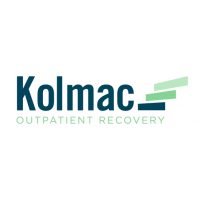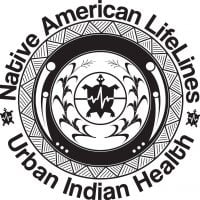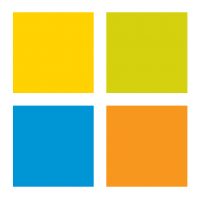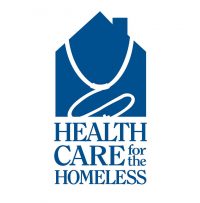
Healthcare for the Homeless
Drug Rehab Center in Baltimore, Maryland
- Substance Abuse
- Opioid Addiction
- Drug Addiction
Healthcare for the Homeless is an Addiction Treatment Facility in Baltimore, MD that provides support and multiple levels of care, ranging from Aftercare Support and Drug Rehab, to Intensive Outpatient and Outpatient, to help individuals with their recovery journey.
About This Baltimore, MD Facility
Healthcare for the Homeless of Baltimore, Maryland is a 501(c)(3) organization which operates two medical clinics and one dental clinic for homeless populations in the Baltimore area. Their healthcare professionals provide comprehensive medical, dental, and mental health care, as well as case management services. These services are available free of charge to all who qualify. Additionally, Healthcare for the Homeless provides primary and specialty care referrals, along with legal services, social work, and housing assistance. Healthcare for the Homeless is accredited by the Joint Commission on Accreditation of Healthcare Organizations (JCAHO) and has a licensed clinical laboratory.
Healthcare for the Homeless specializes in providing comprehensive addiction and substance abuse treatment services for homeless populations in Baltimore. Their services include evaluation, treatment planning, individual and group counseling, medication-assisted treatment, and recovery support services. Healthcare for the Homeless works closely with local and state agencies, as well as other community-based organizations, to ensure continuity of care and the most comprehensive services available. All health services are provided with a patient-centered focus, as Healthcare for the Homeless strives to empower their patients to lead healthier lives.
Genders
Ages
Modality
Additional
Accreditations

JCAHO
Conditions and Issues Treated
Substance abuse is the excessive use of any type of drug. This includes alcohol, medications and illegal drugs. Substance abuse is treated with a combination of physical and mental treatments. Healthcare for the Homeless patients detox and follow up with therapies that target the underlying cause of the addiction.
Opioid addiction is one of Maryland‘s most prominent forms of addiction. Drugs, including heroin, oxycontin, and fentanyl, are the most common. To relieve pain, or ease other ailments, they are professionally prescribed, but they are often abused because they and the feelings they give are addictive.
Addiction is treated by detoxifying the body, so the medications’ chemicals are no longer impacting the individual. Healthcare for the Homeless offers therapies to correct behavior and target the root of the problem are supplemented during and throughout treatment.
Levels of Care Offered
This center offers a variety of custom treatment tailored to individual recovery. Currently available are Aftercare Support, Drug Rehab, Intensive Outpatient, Outpatient, with additional therapies available as listed below.
Intensive outpatient programs mostly conduct meetings on weekdays. Group therapy is the main element in most intensive outpatient programs. Most IOPs last for about 90 days and include drug use monitoring and testing. A Maryland IOP, like what’s offerd at Healthcare for the Homeless, take much more time than a standard outpatient program. Some programs offer other services as well, such as employment assistance and medication management.
Outpatient rehabilitation is a treatment that exists if a patient is not checking into Healthcare for the Homeless long term. In addition to helping them recover, the patient attends regular therapy sessions and detox and participates in other therapies. However, this is all primarily done from home. As a follow-up to inpatient treatment, outpatient treatment is usually recommended.
After rehabilitation, it helps people return to their everyday lives. It may also be an alternative to inpatient care in some situations. If they cannot leave their jobs, children, or don’t have the money for inpatient care, people can choose this method. Inpatient therapy, however, is the best method and most suggested level of treatment offered by Healthcare for the Homeless in recovering from addiction.
Healthcare for the Homeless‘s Therapies & Programs
Group Therapy is a type of counseling that occurs between a bunch of strangers. These groups are suitable for patients who are not confined in a treatment facility, but group sessions are also common in inpatient rehab programs. Group therapy is led by a trained individual at Healthcare for the Homeless in Baltimore, MD and consists of members from different stages of recovery.
The goal of group therapy sessions is to foster hope and a sense of belonging, share information, and learn coping mechanisms. It also helps to have people who can relate to what you’re going through. Good behaviors can also be contagious, and participants can learn from one another.
Unresolved trauma is often a key reason why many patients resorted to substance abuse. Trauma could be physical abuse, sexual abuse, war, natural disasters, divorce, accident, loss of a loved one, etc. If trauma is the primary cause of substance abuse, then both issues must be addressed.
Dialectical Behavior Therapy (DBT) is an improved version of Cognitive Behavioral Therapy (CBT) DBT is a treatment of choice for people being treated at Healthcare for the Homeless whom are suffering from self-harming behaviors. Conditions such as obsessive-compulsive disorder and borderline personality disorder also benefit from DBT.
Cognitive Behavioral Therapy (CBT) is an approach and method in psychotherapy. Healthcare for the Homeless asks people to investigate how their thoughts, including habitual, negative, and inaccurate ways of thinking affect behaviors. CBT is based on the idea that rigid, inflexible ways of thinking cause people to have a limited ability to cope with stress
Rational Emotional Behavior Therapy (REBT) is a method of specific counseling that replaces negative and self-limiting thoughts with positive and productive behaviors. Self-defeating thoughts and habits can limit your possible successes. Some examples of this are procrastination, unhealthy eating and angry outbursts. You may not be aware that some unhealthy behaviors and thoughts are sabotaging your potential accomplishments.
Some people refer to contingency management, or CM, as motivational incentives. This type of therapy is a reconditioning of the mind and responses of the body. The point of CM is to help the body understand the proper responses to behaviors should be, as well as the effects that come with both problematic and desired behaviors. The more positive choices a person makes, the more incentives they will receive, all managed with sobriety goals by Healthcare for the Homeless in Baltimore, MD.
Payment Options Accepted
For specific insurance or payment methods please contact us.
Additional Details
Specifics, location, and helpful extra information.
Baltimore, Maryland 21202 Phone Number(410) 837-5533 Meta DetailsUpdated November 25, 2023
Staff Verified
Patient Reviews
There are no reviews yet. Be the first one to write one.
Baltimore, Maryland Addiction Information
For the past decade, Maryland's rate of drug use and abuse has significantly increased. The overdose rate is currently higher than the national average. This epidemic is due to the many industries where manual labor is required. As soon as prescription opioids were more readily accessible a large part of manual workers started using–and eventually abusing–the painkillers.
According to recent statistics, there are around 33,000 people who are addicted to drugs in Baltimore. Heroin-related overdose deaths are quite high in Baltimore, at 837 per 100,000 residents in 2016. Baltimore's most commonly abused drugs include heroin, cocaine, and marijuana. The people of Baltimore are friendly and welcoming, and there's always something going on. If you're looking for a place to start fresh, Baltimore is the perfect place.
Treatment in Nearby Cities
- Bethesda, MD (33.7 mi.)
- Belcamp, MD (23.3 mi.)
- Crofton, MD (20.6 mi.)
- Bel Air, MD (21.8 mi.)
- Suitland, MD (35.1 mi.)
Centers near Healthcare for the Homeless


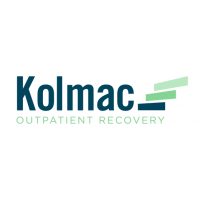
The facility name, logo and brand are the property and registered trademarks of Healthcare for the Homeless, and are being used for identification and informational purposes only. Use of these names, logos and brands shall not imply endorsement. RehabNow.org is not affiliated with or sponsored by Healthcare for the Homeless.


